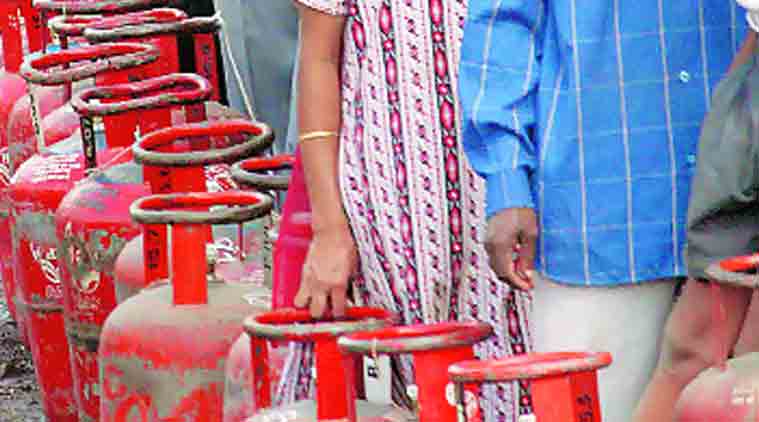
Shardaben Mansinh, a resident of Mekhar Morva village in Panchmahal district, was a BPL cardholder. However, after she was allotted a LPG connection under Prime Minister’s Ujjwala Yojana (PMUY) in June 2016, she was denied subsidised kerosene by the local PDS shop. On inquiry, she was told that she had lost her family’s BPL status after taking the LPG connection, and therefore, she was not entitled to subsidised kerosene and other poverty alleviation schemes’ benefits available to BPL families.
The situation of Lilaben Konabhai Takarda, a resident of Rampur village at Vadali taluka of Sabarkantha district, is no different. As a BPL cardholder, she took an LPG connection with a gas cylinder, stove, regulator and a gas pipe under the PM Ujjwala scheme by paying Rs 600 to the local LPG distributor. She too has been denied kerosene by her PDS shop owner on the ground that she has already got a LPG connection. She was also denied subsidised ration under Antyodaya, a BPL scheme.
Narrating their woes to mediapersons here on Wednesday — as part of the effort of an Ahmedabad-based NGO, Disha Foundation, to highlight the pitfalls of the scheme — they said that PDS shop operators told them that the state government has directed that Ujjwala beneficiaries be no longer be treated as BPL, and hence not entitled for subsidised kerosene and ration.
The women said that they had even offered to return the LPG connections and enroll themselves again as BPL families, but the local authorities told them that it was not possible now. Many of them said that they were so poor and were not able to procure refills after the first LPG cylinder that was given to them free of cost under the scheme.
Despite having LPG connector, they said that a large number of the “Ujjwala beneficiaries” have now returned to using fuelwood and dung cake for cooking due to their easy availability.
When asked why did they require kerosene when they had the option to buy LPG at subsidised rates, they said that they needed kerosene to light their lamps as power supply was highly erratic in the villages in the tribal areas of the state where they live. “Now, we are buying kerosene from black market by paying high prices because we can’t live without it, though we can do without LPG as alternatives like fuelwood is available in our villages,” said Gitaben of Dahod district.
According to official sources, over 20 lakh BPL households in Gujarat have received LPG connections by last year under the scheme that was launched with an aim to protect health of rural women from smoke of fuelwood and dung cakes.
But a study conducted by Disha workers — Paulomee Mistry and economist Hemant Kumar Shah — found that most of the BPL families that received Ujjwala LPG connections were converted to APL families, thus depriving them of the facilities under BPL. “The Ujjwala scheme is apparently deceiving the poor tribal women,” the study, which was released Wednesday, stated.
The study covered 1,080 BPL families from 15 blocks of four tribal districts of Aravalli, Sabarkantha, Dahod and Panchmahal. “Of the 1,080 families, 953 or 88 per cent have been converted to APL on the pretext that their standard of living has improved by receiving LPG connections,” the study, titled — “Impact of Ujjwala Yojana on Tribal Women of Gujarat’’ — stated.
The study also stated that “these families have consequently stopped getting benefits of other poverty alleviation schemes for BPL”’. Only 127 families, according to the study, said that there was no change in their BPL status. According to the study, 96 per cent or 1,033 families informed that they had stopped receiving kerosene quota from PDS after getting cooking gas connection.
“The government is also claiming on this basis that poverty is declining. This is highly misguiding,” Mistry and Shah said.
“The intention of the scheme is very noble but its implementation is really faulty,” they added.